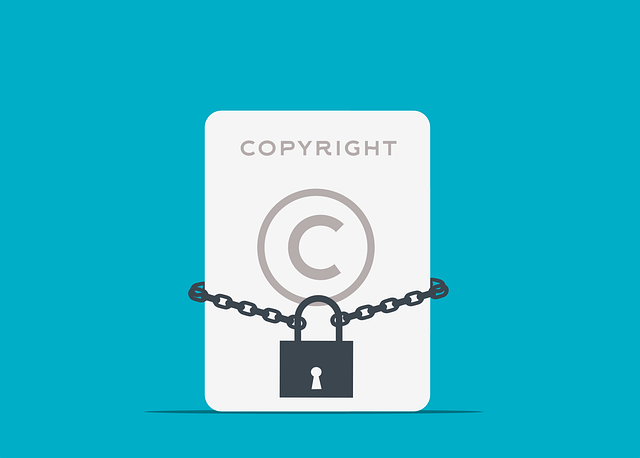In today's globalized market, accurate UK Intellectual Property Documents translation services are vital for businesses expanding internationally. Specialized translators ensure precise translations of complex IP laws, protecting creations and preventing legal issues worldwide. Key factors include expertise in IP law and compliance with local regulations. Best practices involve using tools like translation memory and peer review, while AI-driven technology enhances efficiency and accuracy. Case studies demonstrate the critical value of these services for successful global market entry and IP protection.
In today’s globalized marketplace, precise translations of intellectual property (IP) legal documents are paramount for international protection. This comprehensive guide delves into the intricacies of delivering accurate UK Intellectual Property Documents translation services. From understanding the critical importance of linguistic precision to navigating challenges specific to UK documentation, we explore key considerations, best practices, and the role of technology in enhancing service quality. Case studies highlight successful translations, demonstrating how professional services safeguard IP rights worldwide.
- Understanding the Importance of Accurate Legal Translation for Intellectual Property Protection
- Challenges in Translating UK Intellectual Property Documents
- Key Considerations when Choosing a Translation Service for Legal IP Documentation
- Best Practices for Ensuring Precision and Quality in Legal Document Translation
- Technology's Role in Advancing IP Legal Translation Services
- Case Studies: Successful Translations of UK Intellectual Property Documents
Understanding the Importance of Accurate Legal Translation for Intellectual Property Protection

In today’s globalised market, intellectual property (IP) protection is an essential aspect for businesses operating internationally. This is where accurate legal translations come into play, serving as a cornerstone in safeguarding one’s innovations and creations across borders. When it comes to UK Intellectual Property Documents translation services, precision is paramount.
The intricacies of IP law require expert handling, and language barriers can significantly impact the effectiveness of protection. Professional translators with a deep understanding of both legal terminology and cultural nuances are indispensable. They ensure that documents like patents, trademarks, copyrights, and licensing agreements are translated with absolute accuracy, preserving the original intent and ensuring compliance with local regulations worldwide. This meticulous process is vital for protecting one’s intellectual assets, avoiding potential legal pitfalls, and fostering seamless global operations.
Challenges in Translating UK Intellectual Property Documents

Translating UK Intellectual Property (IP) documents accurately and professionally presents several unique challenges. The intricate legal terminology and nuanced concepts within these documents demand a deep understanding of both the source and target languages. Misinterpretations can lead to significant legal implications, potentially causing confusion or invalidation of protection.
Specialized translation services are crucial for ensuring precision and maintaining the integrity of UK IP documents when they are adapted for international use. These services employ translators with expert knowledge in IP law, coupled with proficiency in relevant languages. They also incorporate rigorous quality assurance processes to catch subtle errors and ensure consistent terminology across all translations.
Key Considerations when Choosing a Translation Service for Legal IP Documentation

When selecting a translation service for delicate IP legal documents, several critical factors come into play. Firstly, expertise in intellectual property law is paramount to ensure accurate and nuanced translations that capture all technical aspects. Legal translators should have a deep understanding of patent, trademark, and copyright terminology to convey the intended meaning precisely.
Secondly, compliance with local regulations is essential, especially when dealing with global IP protection. UK Intellectual Property Documents translation services should be well-versed in the legal frameworks of various jurisdictions to provide translations that meet all necessary standards. Experience in handling international cases and a proven track record are valuable indicators of a service’s reliability and quality.
Best Practices for Ensuring Precision and Quality in Legal Document Translation

When it comes to translating UK Intellectual Property (IP) documents, precision and quality are paramount to ensure legal validity and protection worldwide. Best practices involve engaging professional translators with specialized legal expertise in IP law. These experts not only possess fluency in both source and target languages but also a deep understanding of the nuances and terminology specific to intellectual property cases.
Additionally, utilizing translation memory tools and performing thorough quality assurance checks can significantly enhance consistency and accuracy. Translation memories capture and store previously translated terms and phrases, reducing the risk of repetition and ensuring consistent terminology throughout the document. Moreover, peer review and proofreading by subject matter experts further refine the translation, catching any potential errors or ambiguities that automated tools might miss. This meticulous approach guarantees that UK IP documents are accurately translated, preserving their legal integrity for global protection.
Technology's Role in Advancing IP Legal Translation Services

Technology has played a pivotal role in revolutionizing the field of intellectual property (IP) legal document translation, especially for global protection. With advancements in AI and machine learning, translation services have become more precise and efficient. These innovations enable translators to handle complex UK Intellectual Property Documents with ease, ensuring accurate and consistent interpretations across various languages.
Automated tools can now pre-process documents, identify key terms, and provide initial translations, which are then reviewed and refined by human experts. This collaborative approach leverages the strengths of both technology and human expertise, resulting in faster turnaround times without compromising quality. Moreover, these technologies can adapt to specific legal terminologies, ensuring that vital IP concepts are conveyed precisely, thereby facilitating effective global protection strategies.
Case Studies: Successful Translations of UK Intellectual Property Documents

When it comes to safeguarding intellectual property (IP) rights globally, precise and accurate translations play a pivotal role. Case studies highlighting successful translations of UK Intellectual Property Documents demonstrate the critical importance of professional translation services in this domain. For instance, consider a recent project where a multinational tech company expanded into the UK market. Their comprehensive portfolio included patent applications, trademark registrations, and copyright notices, all requiring meticulous translation to ensure compliance with local laws and regulations.
The translation team, well-versed in UK IP legal terminology, navigated complex concepts with precision, preserving the original intent and meaning. This meticulous approach ensured that the translated documents not only met legal standards but also facilitated a smooth entry into the UK market. The success of such projects underscores the value of specialized translation services for global IP protection, empowering businesses to navigate international landscapes with confidence.
Accurate translations of UK Intellectual Property (IP) documents are essential for global protection and enforcement. As the world becomes increasingly interconnected, accessing legal services across borders has become paramount. High-quality translation services play a pivotal role in ensuring that IP rights holders can effectively navigate international territories. By understanding the unique challenges within UK IP documentation and adopting best practices, organizations can leverage technology to enhance precision and access robust global protection. Choosing the right translation service, considering key factors, and embracing technological advancements ensures the integrity of legal translations, ultimately facilitating a seamless process for IP owners worldwide.



